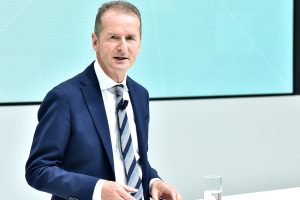Key Points
- 🚗 Tesla has won the first-ever U.S. trial that claimed its Autopilot system was responsible for a fatal crash in 2019.
- ⚖️ A California state jury ruled that there was no manufacturing defect in Tesla’s Autopilot suite, clearing the company of wrongdoing.
- 📅 The crash occurred in 2019 when a Tesla Model 3 veered off the highway and struck a palm tree, resulting in a fatality and injuries to passengers.
- 📜 The lawsuit alleged that Tesla knew of defects in Autopilot and other safety features, but Tesla denied any wrongdoing and cited potential driver factors.
- 📝 The jury found that human error, rather than Autopilot, was the cause of the crash.
- 🏛️ This was the second lawsuit brought against Tesla Autopilot in the year, with a previous case also ruling in favor of Tesla, emphasizing driver responsibility.
- 🚗 Tesla has consistently emphasized that Autopilot and Full Self-Driving are not for fully autonomous driving, and drivers must remain attentive and in control.
Tesla was victorious in the first-ever U.S. trial that claimed its Autopilot system was responsible for a death in a fatal crash that occurred in 2019.
On Tuesday, a California state jury ruled that there was no manufacturing defect in Tesla’s Autopilot suite, which cleared the automaker’s driver assistance feature of any wrongdoing.
In 2019, Micah Lee’s Tesla Model 3 suddenly veered off the highway in Los Angeles, California. The vehicle then struck a palm tree and burst into flames.
Lee passed away, and two passengers, including one that was an 8-year-old boy, were seriously injured. The suit claimed that Tesla knew that Autopilot and other active safety features were defective when the company sold the Model 3 to Lee.
Tesla denied any wrongdoing and stated that Lee consumed alcohol before driving the vehicle. Additionally, the automaker said it could not confirm whether Autopilot was engaged when the accident occurred.
A jury ultimately agreed that Tesla was not responsible for the accident, as it found that there was not a manufacturing defect in the Autopilot system, according to a Reuters report.
Tesla argued that human error caused the crash.
Opening statements for the case occurred on September 28, and just a month later, the jury came to a verdict that cleared Tesla Autopilot of being responsible for the accident.
It is the second lawsuit brought to court against Tesla Autopilot this year. In April 2023, a jury decided that Justine Hsu was responsible for a curb collision that fractured her jaw, caused facial nerve damage, and removed several of her teeth.
Hsu said Autopilot suddenly swerved the car into the curb, and she sought $3 million in damages. A California court awarded her nothing and acquitted Tesla of any wrongdoing.
Tesla has never claimed that Autopilot, or the Full Self-Driving suite, is capable of fully autonomous driving, which would enable drivers to sleep when the car is operating. Disclaimers from the company say that the driver must pay attention to the road and its surroundings, and they are responsible for taking control of the vehicle.




